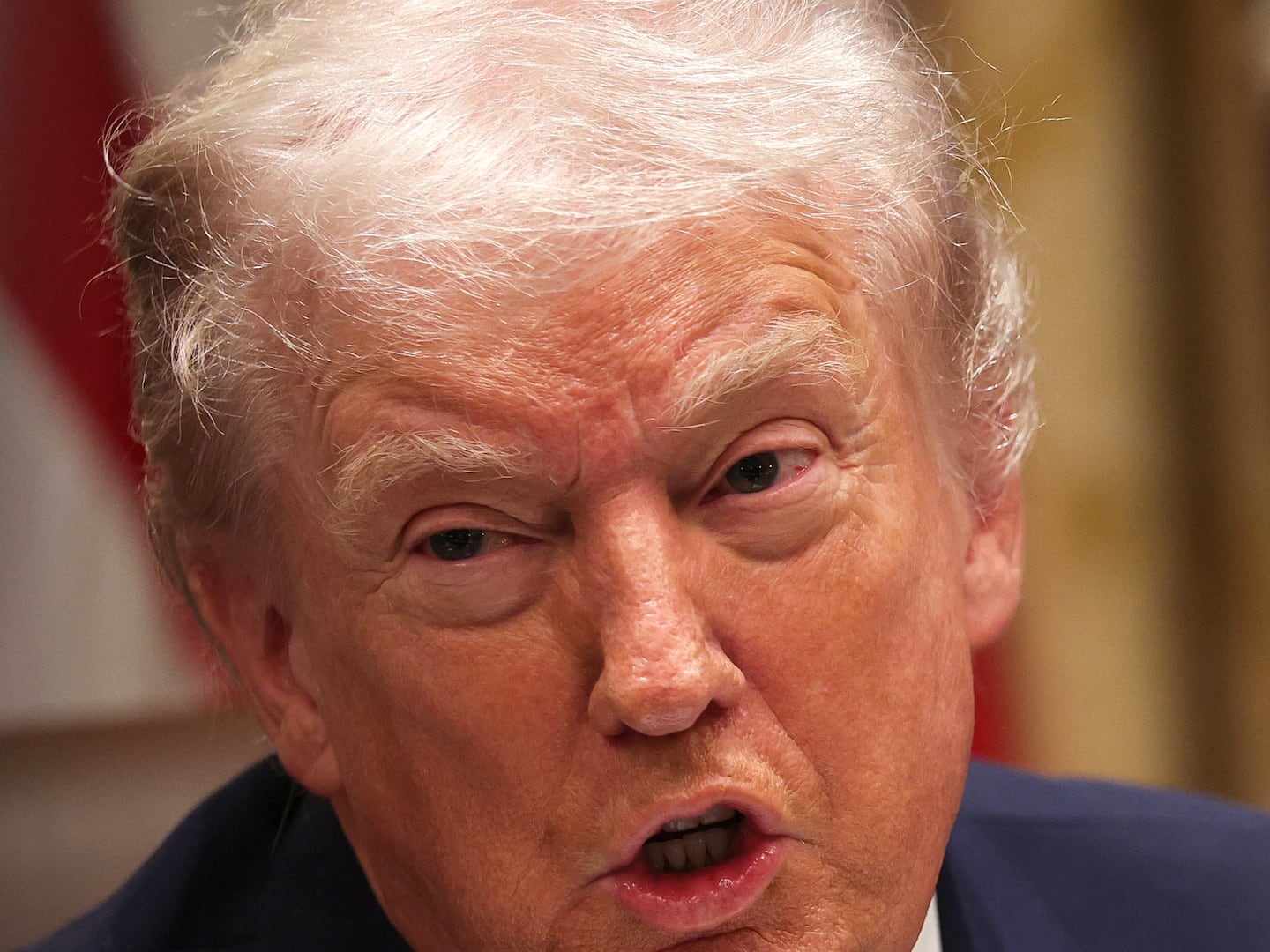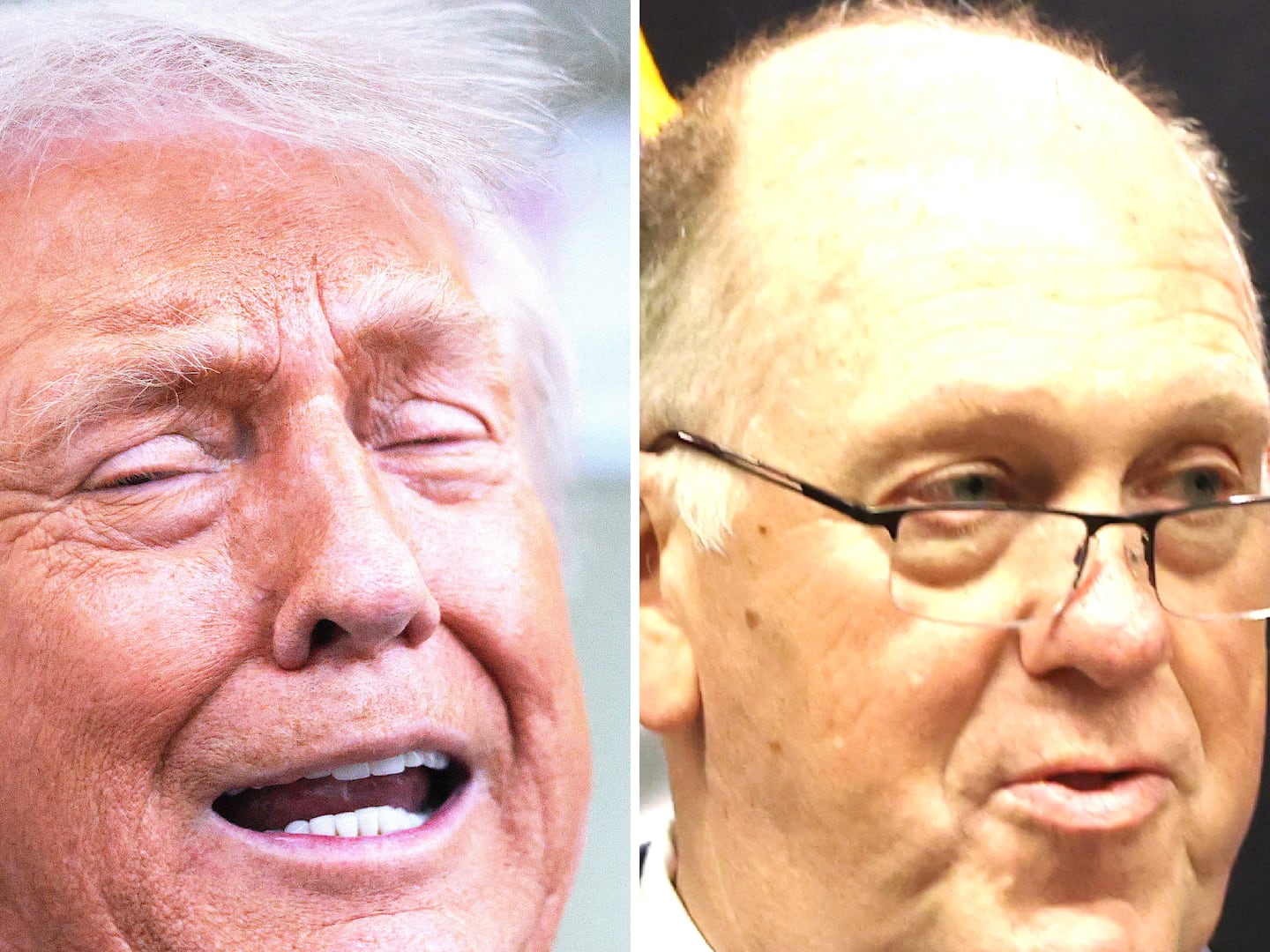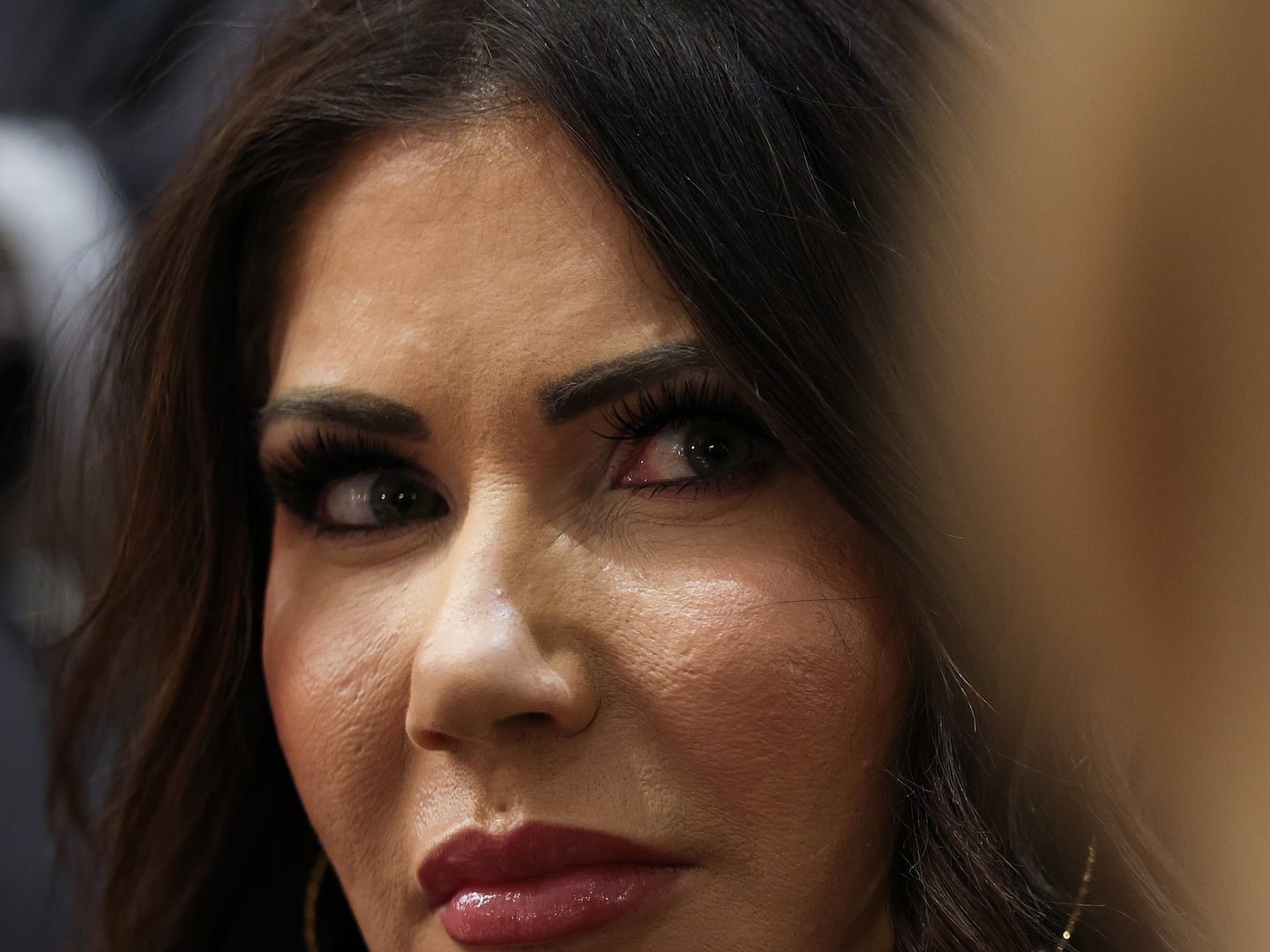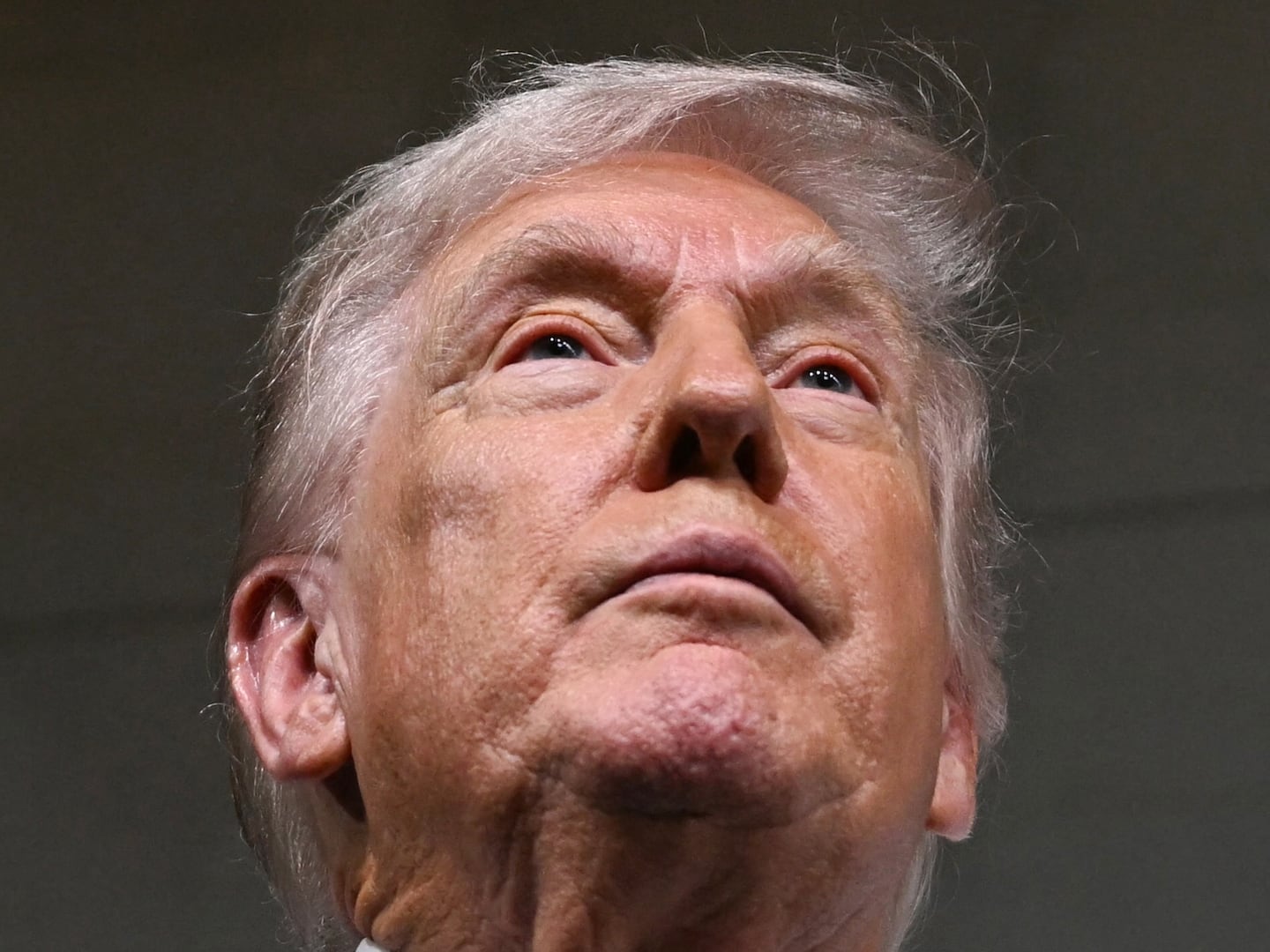Well-known Republican pollster Frank Luntz’s work is causing headaches for the Los Angeles Times.
Recent revelations that he conducted undisclosed, behind-the-scenes partisan consulting while also doing unpaid work for the paper came as little surprise to staffers, who have previously raised concerns about conflicts-of-interest in his work.
Earlier this month, The Washington Post reported that Luntz, a veteran political strategist who has worked in Republican politics for decades and conducted focus groups on behalf of television networks and other media organizations, had been paid by a political action committee controlled by House Minority Leader Kevin McCarthy to conduct surveys last year.
The revelation created editorial issues for the Los Angeles Times, which had enlisted Luntz to conduct several focus group surveys during the 2020 election under the condition he was not also working with candidates or partisan organizations.
The Post’s story pushed the Times to update several items from last year about the focus groups, noting that the paper “incorrectly stated that the public opinion expert who convened the panel, Frank Luntz, did not work for a political party in the 2020 election cycle.”
The embarrassment also opened up an old wound within the newsroom, where Luntz’s public-opinion surveys had previously been the subject of internal tension and concerns voiced by newspaper staffers.
A famed public-opinion analyst with decades of experience, Luntz has been a fixture of Republican politics since the early 1990s, when he helped House Speaker Newt Gingrich draft the Contract With America and advised other Republican figures like former New York City Mayor Rudy Giuliani and Pat Buchanan. For years, Luntz interspersed his political work with media appearances, hosting focus groups and regularly appearing on Fox News and CBS News, where he had contributor contracts.
While his paid TV work has seemed to slow in recent years, Luntz—who did not respond to a request for comment on this story—has continued to partner with major media outlets during election seasons to hold small focus groups designed to explore what supposedly motivates the average American voter. Just last week, he conducted a session on conservative views of George Floyd, published in The New York Times opinion section; and another recent Luntz session with vaccine-resistant Republicans was prominently featured on This American Life and in The Washington Post.
Last year, the Los Angeles Times commissioned Luntz to conduct a round of such group sessions following one of the 2020 Democratic presidential primary debates. Multiple sources with knowledge told The Daily Beast that the paper’s owner, Patrick Soon-Shiong, was interested in focus groups run by Luntz, who Salon noted was personal friends with the LA-based pharmaceutical-industry billionaire (both Luntz and McCarthy were part of a clinical trial for the COVID vaccine that Soon-Shiong is pursuing, Salon further reported).
The move sparked concern among some Times staffers, particularly some of the unionized journalists covering the election, who felt his consultation for political organizations—including Trump administration officials—gave an inherently right-leaning partisan slant to his surveys.
Newspaper staffers brought their concerns to Norm Pearlstine, then editor-in-chief, as well as top deputies Scott Kraft and Shani Hilton, informing management that unionized staffers refused to put their bylines on Luntz-related content, citing wariness of the analyst’s political work and methodology (Luntz’s questions have occasionally publicly irked survey participants, who felt he was biased toward particular candidates and ideas).
The paper, which had already recorded a focus group with Democratic primary voters, decided last summer to move the content from its news section to its opinion vertical. Staffers thought the matter was largely settled.
But many journalists and some newsroom leaders were taken aback when, just a few months later, the paper decided to conduct a second round of focus groups with Luntz, this time following the presidential and vice-presidential debates.
In messages posted to an internal Slack channel dedicated to journalistic ethics, reporter Michael Finnegan wrote that he and other staffers were frustrated that the paper enlisted Luntz to host yet another round of focus groups given his work advising top Trump administration officials on messaging for a variety of political issues. More specifically, Finnegan—who did not respond to a request for comment—said he was concerned about the language in the story claiming Luntz was not working for any candidate or party during the 2020 election. The pollster had advised the Trump administration informally during the president’s time in office, the Times reporter noted for his colleagues.
“It’s a conflict of interest for him to advise top Trump administration officials on how to talk about immigration, trade, education, and other topics,” Finnegan wrote, “and then hold himself out to be an unbiased vehicle for assembling an LA Times focus group of independent voters to evaluate a Trump-Biden debate.”
Others on staff pointed out that Luntz’s survey group didn’t include enough diverse perspectives, which had been a source of frustration in the newsroom all year after a heated and public reckoning over the paper’s failure to adequately cover non-white communities in Southern California. Some felt that Luntz was encouraging survey participants to engage in what they felt were racial and gendered stereotypes about then-Sen. Kamala Harris, including comments on her facial expressions and how likeable she was.
“It’s bad enough his panelists tend to trot these stereotypes out unchecked, but it’s hard to be surprised when they’re the same ones frank tweets and says himself (and then prompts them on in questions),” another Times staffer added in the Slack chat at the time.
The paper was unaware of Luntz’s partisan work during the 2020 election cycle. Times opinion editor Sewell Chan told colleagues that Luntz told him he had not been paid by any candidate, party, or committee during the election cycle. But as Salon noted this week, Luntz’s firm was paid by the Republican leader’s PAC multiple times in the days before and after the focus groups held in partnership with the SoCal-based paper. (Salon also reported that Luntz had failed to disclose work for Sen. Ted Cruz’s 2018 re-election campaign while hosting several focus groups for Vice News.)
In a note sent to staffers on Friday, Chan defended the decision to host the focus groups, claiming they offered “interesting insights into the minds of undecided voters,” and said that the paper did not present Luntz’s studies as scientific samples. Still, he seemed to express frustration with the pollster and said he acted swiftly to update the past content. Further, he suggested the pollster would likely would not return as a contributor to the opinion section due to his failure to disclose his work for GOP leadership.
“It is most unfortunate that Luntz failed to disclose his ties to McCarthy’s PAC, and his ethical lapse will certainly factor into our thinking should he ever wish to be an opinion contributor again,” Chan wrote.
In a statement, the Times noted that the focus groups were not conducted by the paper itself, but that the paper had provided production support and hosted the video on its website.
“While we regret that Luntz did not originally disclose his work for a political action committee led by Rep. Kevin McCarthy (R-Bakersfield), the House minority leader, at the time the focus groups were conducted, we believe that the discussion with voters during the campaign was valuable,” spokesperson Hillary Manning wrote. “We have added the disclosure where the videos are published.”
While many on the left have been critical of Luntz and his focus groups for years, the veteran strategist has come under increased scrutiny in recent weeks from conservatives.
Earlier this month, Fox News primetime host Tucker Carlson used his show to rage against Luntz as being increasingly beholden to “liberal causes” by offering advice to large companies. The right-wing media star additionally reported that the House minority leader once rented a room in the veteran pollster’s lavish D.C. home.








